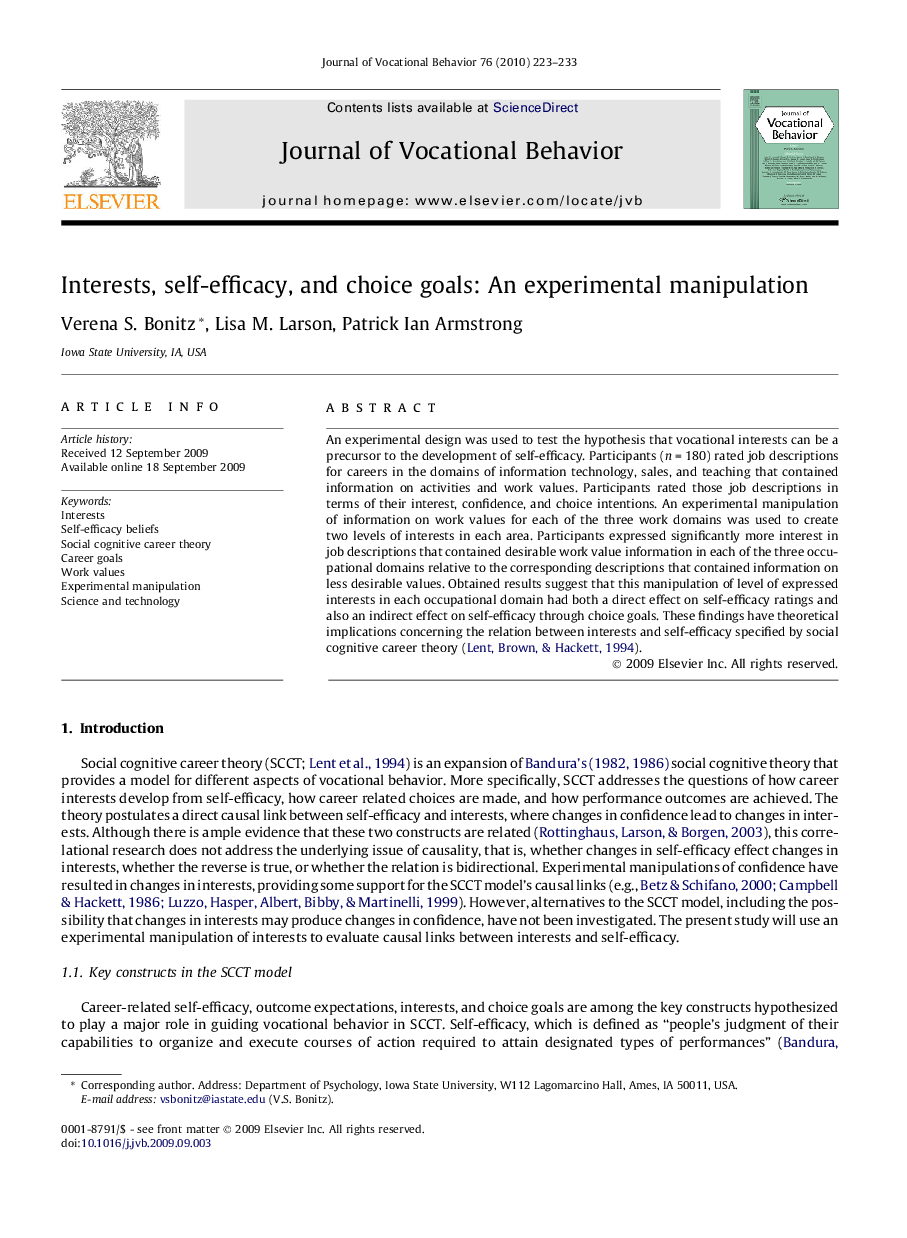| Article ID | Journal | Published Year | Pages | File Type |
|---|---|---|---|---|
| 887422 | Journal of Vocational Behavior | 2010 | 11 Pages |
An experimental design was used to test the hypothesis that vocational interests can be a precursor to the development of self-efficacy. Participants (n = 180) rated job descriptions for careers in the domains of information technology, sales, and teaching that contained information on activities and work values. Participants rated those job descriptions in terms of their interest, confidence, and choice intentions. An experimental manipulation of information on work values for each of the three work domains was used to create two levels of interests in each area. Participants expressed significantly more interest in job descriptions that contained desirable work value information in each of the three occupational domains relative to the corresponding descriptions that contained information on less desirable values. Obtained results suggest that this manipulation of level of expressed interests in each occupational domain had both a direct effect on self-efficacy ratings and also an indirect effect on self-efficacy through choice goals. These findings have theoretical implications concerning the relation between interests and self-efficacy specified by social cognitive career theory (Lent, Brown, & Hackett, 1994).
